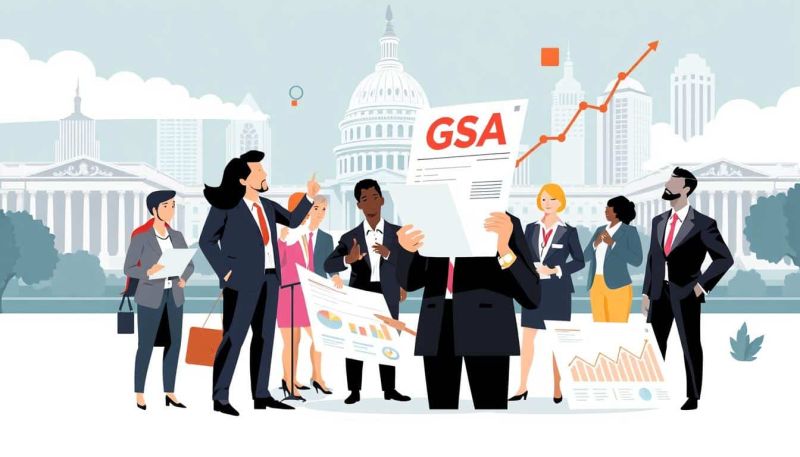The Tightrope Between Profit and Public Good
Pfizer has long been a major player in the pharmaceutical industry, leveraging both innovation and strategic partnerships to maintain its market position. Pfizer is a behemoth. No question about it. The pharmaceutical titan, famous (or infamous, depending on who you ask) for its COVID-19 treatments just dropped its 2025 revenue forecast. The magic number? Somewhere between $61 billion and $64 billion. That’s not pocket change, and yet, it’s a relatively stable projection compared to 2024 (minus the one-time $1.2 billion Paxlovid boost).
But here’s the kicker: The company still leans heavily on government contracts. Which means? Stability, sure—but also vulnerability. A shifting political landscape, unpredictable demand for COVID-related products, and, let’s be honest, public skepticism toward Big Pharma could throw a wrench into things.
Let’s unpack this.
Pfizer’s 2025 Forecast: What’s Keeping the Lights On?
First things first—how does a company like Pfizer maintain a revenue stream of $60+ billion? A few usual suspects keep the cash registers ringing:
- COVID-19 Treatments & Vaccines – They’re still here. And despite people being over the pandemic, governments aren’t ready to stop stockpiling (just in case).
- Blockbuster Drugs – Pfizer’s got its fingers in everything from oncology to immunology, and those markets aren’t slowing down.
- Government Funding & Contracts – Uncle Sam (and his international cousins) still have open wallets, at least for now.
- Mergers & Acquisitions – When in doubt, buy up smaller players. Keeps the pipeline full.
But here’s where things get tricky: reliance on government deals means exposure to politics.
The Government Contract Gamble
Governments are unpredictable—one day, they’re throwing money at pharma companies, the next, they’re holding congressional hearings on drug pricing. Pfizer knows this dance well.
Since 2020, the U.S. and other nations have poured billions into ensuring COVID-19 vaccine and treatment availability. But in 2025? The landscape’s shifting. Funding for emergency pandemic response is drying up. The public narrative around COVID treatments is murky (to put it mildly). Will governments continue signing off on massive procurement deals?
Spoiler: Probably, but not at the levels we’ve seen.
Pfizer has played this game before. It’s got lobbying power, market influence, and—let’s be real—some of the best lawyers in the business. But that doesn’t mean it’s bulletproof.
Just ask Moderna.
What This Means for Smaller Pharma Players
So where does this leave smaller pharmaceutical companies? In the dust? Maybe. But not necessarily.
The government’s appetite for medical innovation isn’t disappearing—it’s just evolving. That means mid-sized pharma firms might still have a shot, especially if they:
- Focus on Niche Markets – Think rare diseases, personalized medicine, and non-COVID treatments.
- Form Strategic Partnerships – Teaming up with bigger fish (Pfizer, Merck, Roche, etc.) can open doors.
- Master Regulatory Navigation – The FDA approval process is brutal. But those who crack the code? They win big.
The key is adaptability. Pfizer’s got deep pockets and brand recognition, but smaller players? They’ve got agility. And sometimes, that’s an edge.
Lessons from the Titan: How to Secure Government Contracts
Pfizer didn’t just stumble into its government deals. It played a long game. And there are takeaways here for any pharma company looking to break into the government contracting space:
- Know the Procurement Process – It’s a bureaucratic nightmare, but those who understand the system win the contracts.
- Play the Partnership Game – Joining forces with established names builds credibility.
- Stay Ahead of Regulation – The faster you get regulatory approval, the faster you get paid.
- Showcase Innovation – Governments are more likely to fund unique, high-impact treatments.
- Watch the Politics – Policies change. Staying ahead of political trends can make or break a deal.
It’s not just about having the best drug. It’s about selling the best narrative.
What’s Next? The Shifting Tides of Pharma Funding
The next few years will see a recalibration of government spending in healthcare. Expect:
- More scrutiny on drug pricing – Pfizer, among others, is already under fire.
- Increased investment in non-pandemic-related health crises – Think cardiovascular diseases, obesity treatments, and mental health drugs.
- Domestic pharmaceutical manufacturing incentives – Global supply chains are fragile; governments want more control.
- Public-private partnerships – Pharma companies may need to split costs (and profits) with governments.
Pfizer’s playbook will shift, but it won’t crumble. The company’s too entrenched in the system. But smaller firms? They’ll need to be more strategic than ever.
FAQs
Will government contracts still be a major revenue source for Pfizer?
Yes, but expect a shift from pandemic-specific deals to broader public health initiatives.
How can small pharma companies compete?
By innovating in niche markets, securing partnerships, and understanding regulatory and political landscapes.
What happens if governments cut COVID-19 funding?
Pfizer will pivot (as it always does), but smaller firms relying solely on COVID-related deals might struggle.
Is Pfizer’s financial forecast reliable?
As reliable as any corporate projection—meaning, take it with a grain of salt.
How does Pfizer’s government relationship impact drug pricing?
It’s a balancing act. Too high, and governments push back. Too low, and profits shrink. Expect ongoing debates.
What’s the next big growth area in pharma?
Beyond COVID, watch for breakthroughs in oncology, gene therapy, and metabolic disorders.
The Balancing Act Between Power & Uncertainty
Pfizer’s 2025 revenue forecast suggests confidence, but confidence in what? The company is still riding the government contract wave, but tides shift.
For mid-sized pharma players, the message is clear: adapt or get left behind. The game isn’t rigged, but it’s definitely stacked in favor of the giants. That doesn’t mean smaller companies can’t win—it just means they have to play smarter.
And Pfizer? It will be fine. It always is.
For now.




